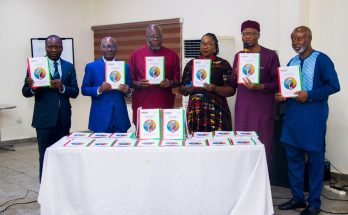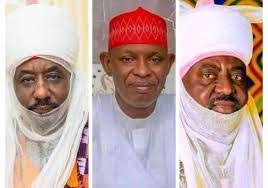-Uncertainty over INEC’s N143bn budget
With exactly 168 days to the February 16, 2019 Presidential/ National Assembly Elections, as well as the Governorship and State Houses of Assembly polls on March 2, 2019, there are uncertainties over the fate of the exercise. One of such confusions lies in the Electoral Act to be used in carrying out the conduct of the elections by the Independent National Electoral Commission, as the 30- day constitutional duration for signing of the 2010 Electoral Act (Amendment) Bill 2018, elapsed yesterday(September 2, 2018) without the required presidential assent. President Muhammadu Buhari transmitted the Bill to the National Assembly last month, precisely July 3. Similarly, another worry borders on the source for funding of the proposed and adopted N143billion INEC component of the N164billionn election budget, which may pit the Presidency against the National Assembly Worry over INEC funding While the President, in a virementseeking letter forwarded to both chambers of the National Assembly in July, sought for virement of the money along with other elections related budgetary proposals totalling N228billion, from the N578billion allegedly inserted into the N9.12trillion 2018 budget by the National Assembly, the federal lawmakers, in their adoption of the N143billion INEC component of the monies, recommended for its virement from the N943billion service wide votes put in the budget by the executive. The lawmakers, who made their position known at a meeting with the INEC team last Thursday, stopped the executive from drawing from the N578billion earmarked for execution of 1,403 special constituency projects. The joint committee, however, said its recommendation was subject to ratification by the leadership of the National Assembly and its committees on Appropriation for more legislative inputs and final approval. On Electoral Act Also, with the President not assenting to the 2018 Electoral Bill sent to him, INEC will have to rely on provisions and guidelines prescribed by the 2010 Electoral Act, which were largely manual, for the conduct of the 2019 general elections. Adherence to electronic provisions in the bill like legalisation of the card readers, electronic transmission of results from polling units to collation centres etc will no longer be compulsory. The bill passed by both chambers of the National Assembly on the 24th of July, 2018, the very day the federal lawmakers embarked on their ongoing long recess, according to the Senior Special Assistant to the President on National Assembly Matters (Senate), Senator Ita Enang , was transmitted to President Buhari for assent on the 3rd of last month. The Presidential Liaison at the National Assembly had made clarification on the status of the bill on the 14th of last month against the backdrop of a media report that the president had again vetoed 2018 Electoral Bill forwarded to it for assent by the National Assembly. He, however, clarified that the vetoed bill was the one sent to the President on 27th June, 2018 and not the one passed by both chambers of the National Assembly on July 24th 2018. “The reported vetoed bill was the one passed by the National Assembly and transmitted to the President for assent on the 27th of June 2018 duration of which in line with constitutional provisions expires on the 26th of July, 2018, warranting the said veto. “Yes , an electoral bill was vetoed or refused assent by the President but not the last version of the 2018 electoral bill transmitted to the President for assent on the 3rd of this month that has just spent 11 days on his table and still having 19 days more for possible consideration and assent “, he explained. Prior to this time, the president had vetoed a version of the 2018 electoral bill forwarded to him on the 27th of June 2018 and vetoed on the 26th of July 2018 in line with the 30 days constitutional life lines for such bill, Also, the President had earlier in the year, rejected the first of the 2010 Electoral Act (Amendment) Bill 2018 forwarded to him in February this year. President Buhari had in vetoing the earlier one in February this year, cited three reasons for doing so, one of which was the new sequence of elections included in the bill through section 25(1). The President in his rejection, said the inserted section in the Electoral Act violates the provisions of section 72 of the 1999 constitution, which empowers INEC to fix dates of elections and see to its conduct in all ramifications. With the 30 days expiration of the latest of the bills yesterday, President Buhari has altogether, refused assent to three electoral bills this year at different times.



